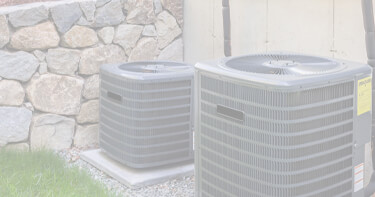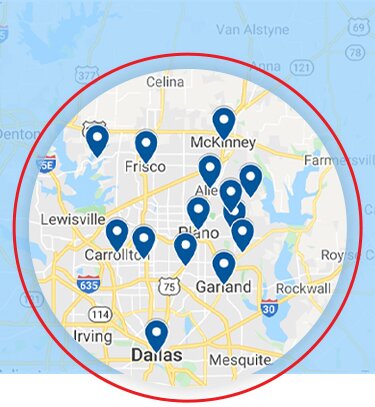
Why Isn’t My Furnace Generating Heat?
With another winter getting ready to bear down on the Dallas and Plano areas, local residents will once again depend on their furnaces in order to ward off chilly days and nights. There’s little that’s more frustrating to a homeowner who turns up the thermostat, hears the furnace kick on, and then waits in vain for a nice, warm blast of heat.
Your family and your home can suffer greatly from not having a functioning furnace. Your pipes can freeze, and if it’s cold enough, the low interior temperatures can become hazardous to your health. It’s a big deal if the furnace isn’t working. Several different issues that can cause this, and most of them call for the services of an experienced service technician.
Reasons Your Furnace Isn’t Working
Failed Blower Motor
A blower motor should begin pushing air into the home within about a minute after the furnace ignites. When a motor is on the verge of failing, it may or may not start. A humming noise easily heard through a heat register may indicate the motor has failed or a bad capacitor.
Blocked Vent Pipe
A blocked intake or vent pipe normally stops the furnace immediately. If the vent is only partially blocked, the furnace may operate normally most of the time, or especially during short periods of continuous operations. It will, however, shut down if the run cycles are overly long.
Vent pipes can be easily blocked by water that fails to drain out of the pipe, materials or objects accidentally blocking the pipe outlets or by bird nests, leaves or dead animals inside the pipe.
Bad Vent Motor
Newer furnace models that are more than 80 percent efficient contain a vent, or combustion motor that forces air into the burners. When this motor is on the verge of failure, it’s not uncommon for it to occasionally fail to start. One good clue is detecting a humming sound when checking the furnace.
Blocked Drain
High efficiency gas furnaces typically produce water during operations. This water flows through a drain line to remove it from within the furnace. If or when the drain becomes clogged, water will collect in the furnace, causing it to shut down. A slow or partially-blocked drain will cause problems when the furnace runs for a prolonged period of time (usually during extremely cold weather). Frozen water trapped in the drain can also cause a furnace shut down.
Clogged Flame Sensor
When activated, all gas furnaces open an internal valve to allow gas to escape into the combustion chamber. At that time, a flame sensor checks for the successful ignition of the gas. If the sensor doesn’t sense a flame within about six seconds after the valve opens, ignition is stopped.
If the burners do ignite, but then go back out after about the same amount of time, this may indicate a dirty or clogged flame sensor. While a dirty flame sensor can cause ignition failures, it happens so infrequently that it might not be suspected at first.
Clogged Air Filter
This is one of the most common causes (and easiest fixes) for a furnace that won’t generate heat. A dirty or clogged air filter will always have an effect on the volume of heated air your furnace delivers into your home. Dirty filters can cause the furnace to continuously cycle on and off, which can overheat or over-stress the unit and interior components. A dirty air filter usually won’t cause obvious problems heating failures until the furnace runs constantly during very cold weather conditions. Always remember to change or clean your furnace’s air filter before firing it up.
Furnace Repair in Plano & Dallas, Texas
Have a furnace problem? Contact Total Air & Heat before a little malfunction turns into a disaster! Our technicians are all NATE-certified and required to attend a minimum of two manufacturers’ training schools a year. We value homeowners, like you, which is why we specialize in Carrier furnace repair. So, call us at 972-881-0020 when you need furnace repairs in the Greater Dallas area, including Plano!
a step above the rest
awards & community involvement
awards & community involvement
a step above the rest










